Sermon: Follow the Way of Self-Giving Love
Published by Ronald Steed,
CONVERGING FORCES | CALL
Sermon: Follow the Way of Self-Giving Love
St. Andrews Episcopal Church, Madison, CT ¹
Taken from Matthew 4:12–23 (NRSV)
Now when Jesus heard that John had been arrested, he withdrew to Galilee. He left Nazareth and made his home in Capernaum by the sea, in the territory of Zebulun and Naphtali, so that what had been spoken through the prophet Isaiah might be fulfilled: "Land of Zebulun, land of Naphtali, on the road by the sea, across the Jordan, Galilee of the Gentiles — the people who sat in darkness have seen a great light, and for those who sat in the region and shadow of death light has dawned."
From that time Jesus began to proclaim, "Repent, for the kingdom of heaven has come near." As he walked by the Sea of Galilee, he saw two brothers, Simon, who is called Peter, and Andrew his brother, casting a net into the sea — for they were fishermen. And he said to them, "Follow me, and I will make you fish for people." Immediately they left their nets and followed him. As he went from there, he saw two other brothers, James son of Zebedee and his brother John, in the boat with their father Zebedee, mending their nets, and he called them. Immediately they left the boat and their father, and followed him.
Jesus went throughout Galilee, teaching in their synagogues and proclaiming the good news of the kingdom and curing every disease and every sickness among the people.

How did we end up here? | Photo by Ron Steed
At the Dinner Table
Peter and his brother Andrew, James and his brother John are sitting around the table after the evening meal. Jesus has just excused himself to go pray; it is the first time the four of them have been alone together since they met Jesus at the shore. James asks "How did this happen? How did we end up at this table?" For a moment there is silence as they ponder what had happened earlier that morning.
All four of them were fishermen with businesses to manage and families to feed. All were deeply networked into the economic system gathered around the fishing industry in Galilee. And they walked away from all that onto a new path.
To Fish in Capernaum
To make a living as fishermen, the capital was needed for boats, sails, rigging, nets, weights, and anchors. If these weren’t owned outright, they had to be leased for a share of the catch.
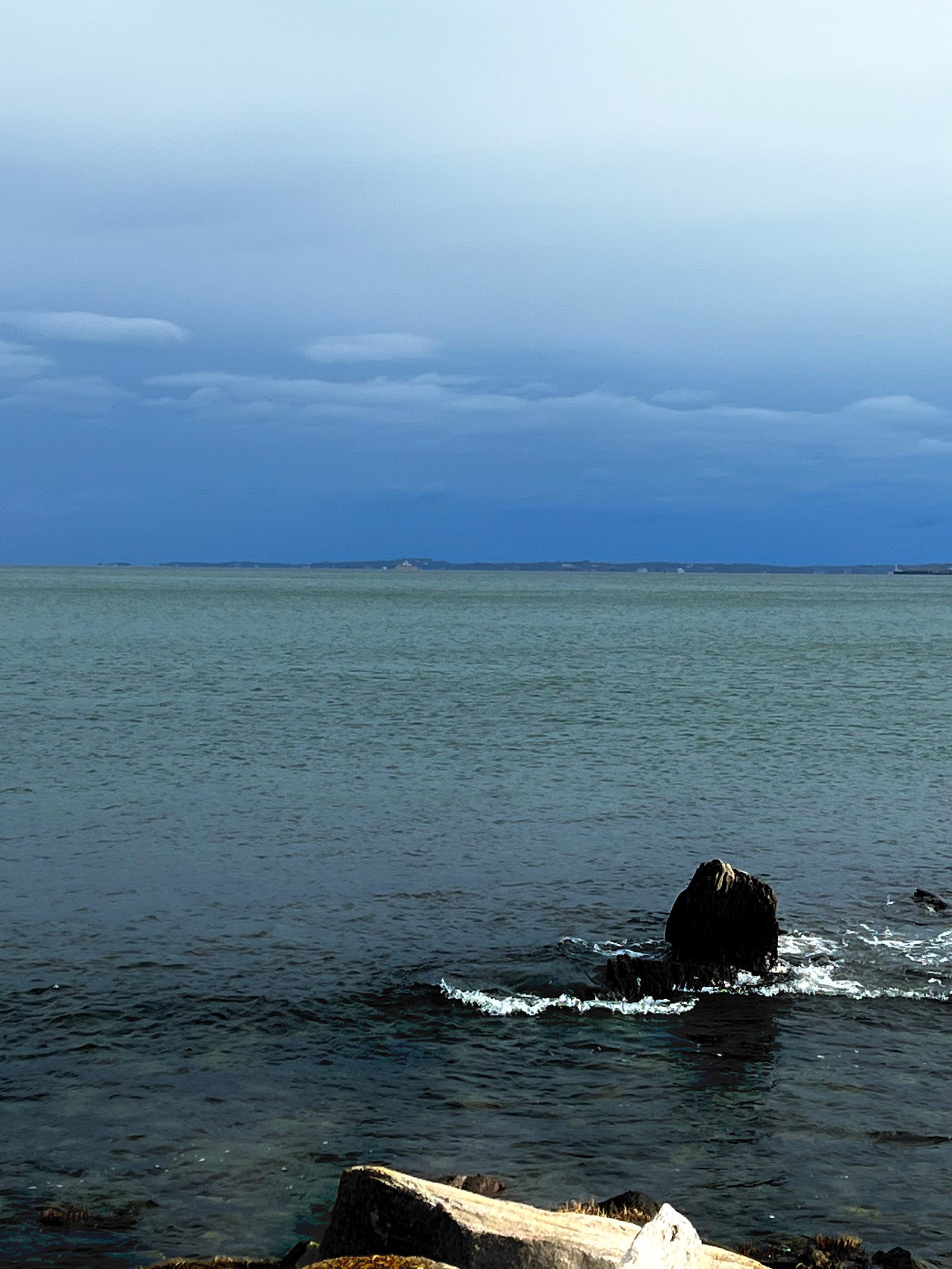
Dark clouds on the sea’s horizon | Photo by Ron Steed
And, there were taxes to be paid to powerful leaders in Jerusalem and of course, in Rome. There might have been a fishing cooperative in Capernaum to support, that would regulate their catch and shield them from the powerful if that was possible.
They were part of this network of family and villagers, suppliers and consumers, fish processors and shipping brokers, regulators and tax collectors. Much of the wealth of Palestine was taken by the Romans, and that might have consumed most of what they caught.
It may be that they made enough to sustain their families, with perhaps a little extra to keep up with the capital needs of their business. They weren’t "middle class" as we might think of them. They were certainly not among the class of hated and despised tax collectors who skimmed off the top for themselves. They were not among the urban elite, but they were also not homeless. With the Roman presence in Palestine, they probably carried more stress to make ends meet than we do today in Madison.
More a Command than an Invitation
So when Jesus came up to them as they worked along the shore, and said "Follow me, and I will make you fish for people", why did they get up and go? They left a lot behind.
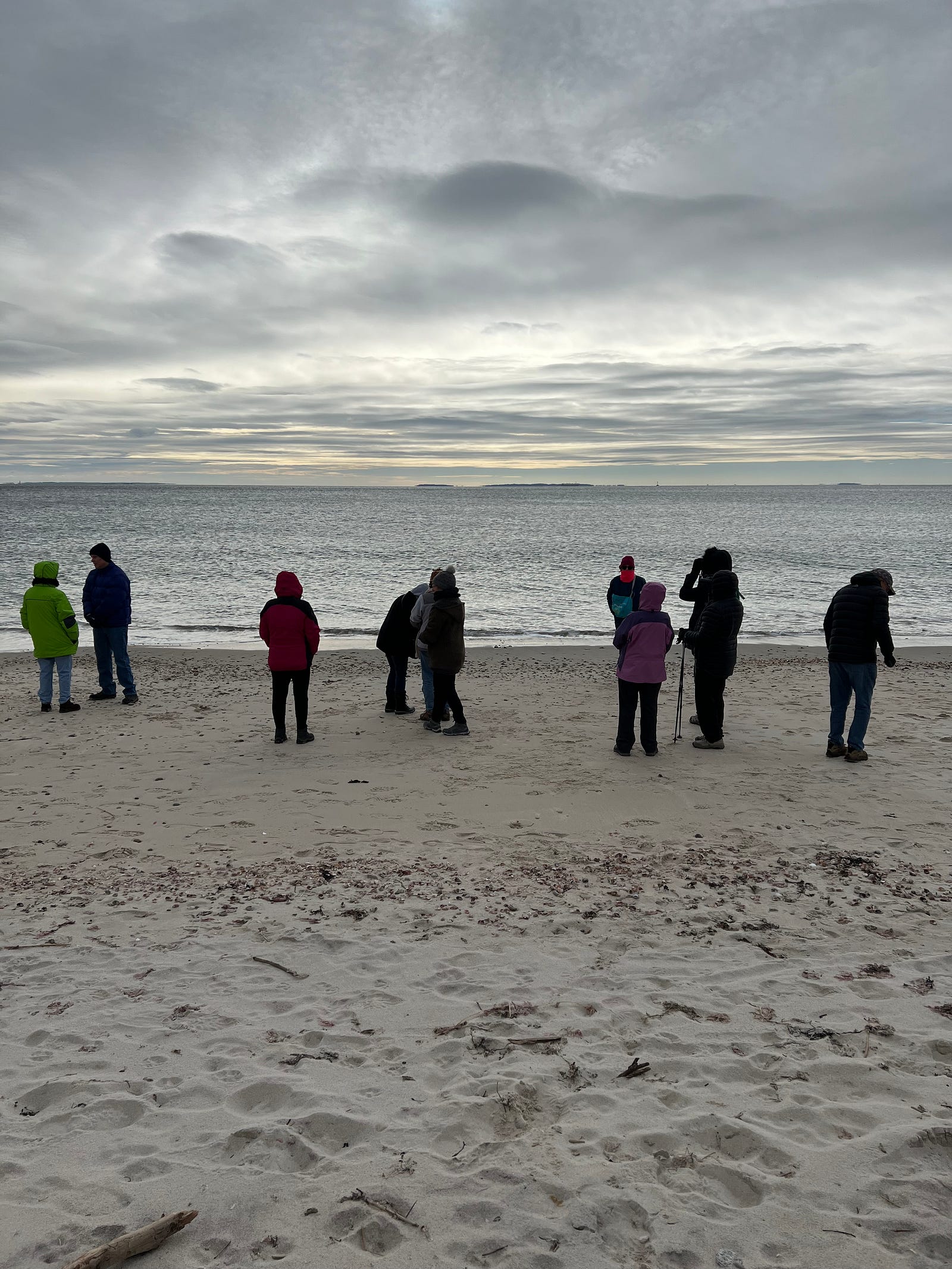
A different kind of fishing | Photo by Ron Steed
But there was something about Jesus. He spoke and acted as though he was in charge like he was speaking with AUTHORITY. His "follow me" sounded more like a command than an invitation. It sounded like something that someone in charge would say.
Three Converging Forces
One reason they walked off in a new direction might have had to do with the three major forces that were converging together in the Palestine of Jesus’ time:²
The Romans
The Romans were one force, at the very peak of their power, led by Caesars who claimed that they were the "son of God", and acted like it.
They didn’t conquer the known world for the joy of it; they needed what the Middle East produced; wheat, fish, wealth… food to feed the incredibly overpopulated city of Rome.
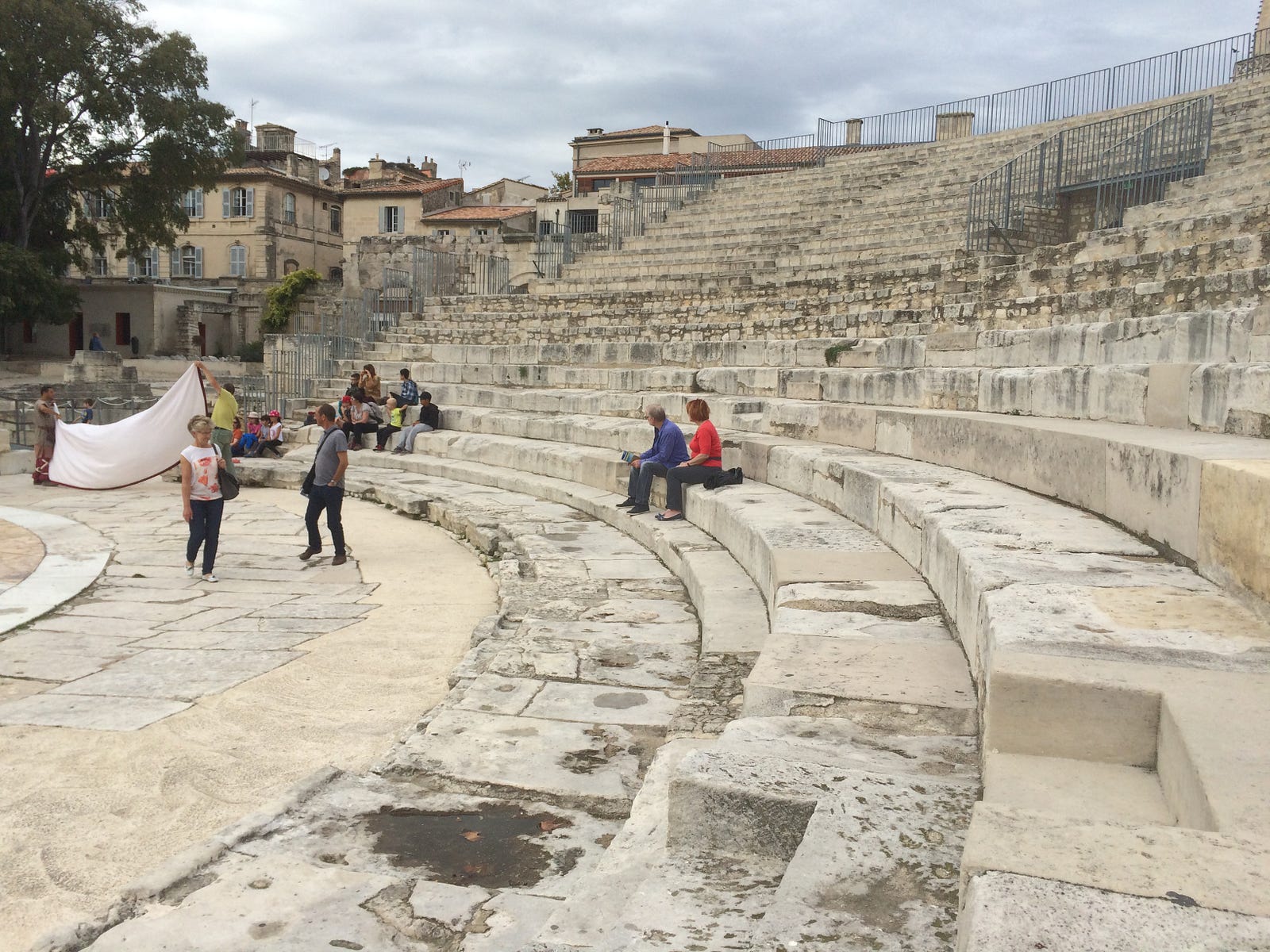
Keeping Rome fed was the aim of every conquered place | Photo by Ron Steed in Arles, France
The propaganda of Rome was that their presence was "good news" (Gospel), bringing peace and stability to the whole world. The Romans were a people who had arrived to power and glory, and they saw the history of their arrival as divinely inspired.
I don’t think the fisherfolk of Capernaum saw it that way.
The Jewish People
The Jewish people were the second force. They returned from exile in Babylon 500 years before, and had suffered a succession of overlords; Alexander the Great, his sons, and eventually the Romans. It was as though the exile had not really ended for them.
They also had a history… a history that said God would put them in charge of the world, including the Romans. And God would tap a Messiah, an "anointed one" to help. They had a prophecy that the fullness of time had arrived; NOW was when that Messiah would appear. That is WHY people were so excited about John the Baptist’s proclamations in the desert that the Messiah was coming.
The Jewish people were a people who were looking ahead to their own golden age of power, and it looked to many like that time had come.
Just to show how volatile that hope was in Palestine, there were three Jewish-Roman Wars fought between 66 and 136 AD, all led by ones claiming to be the Jewish Messiah. The Jewish people lost all three disastrously.
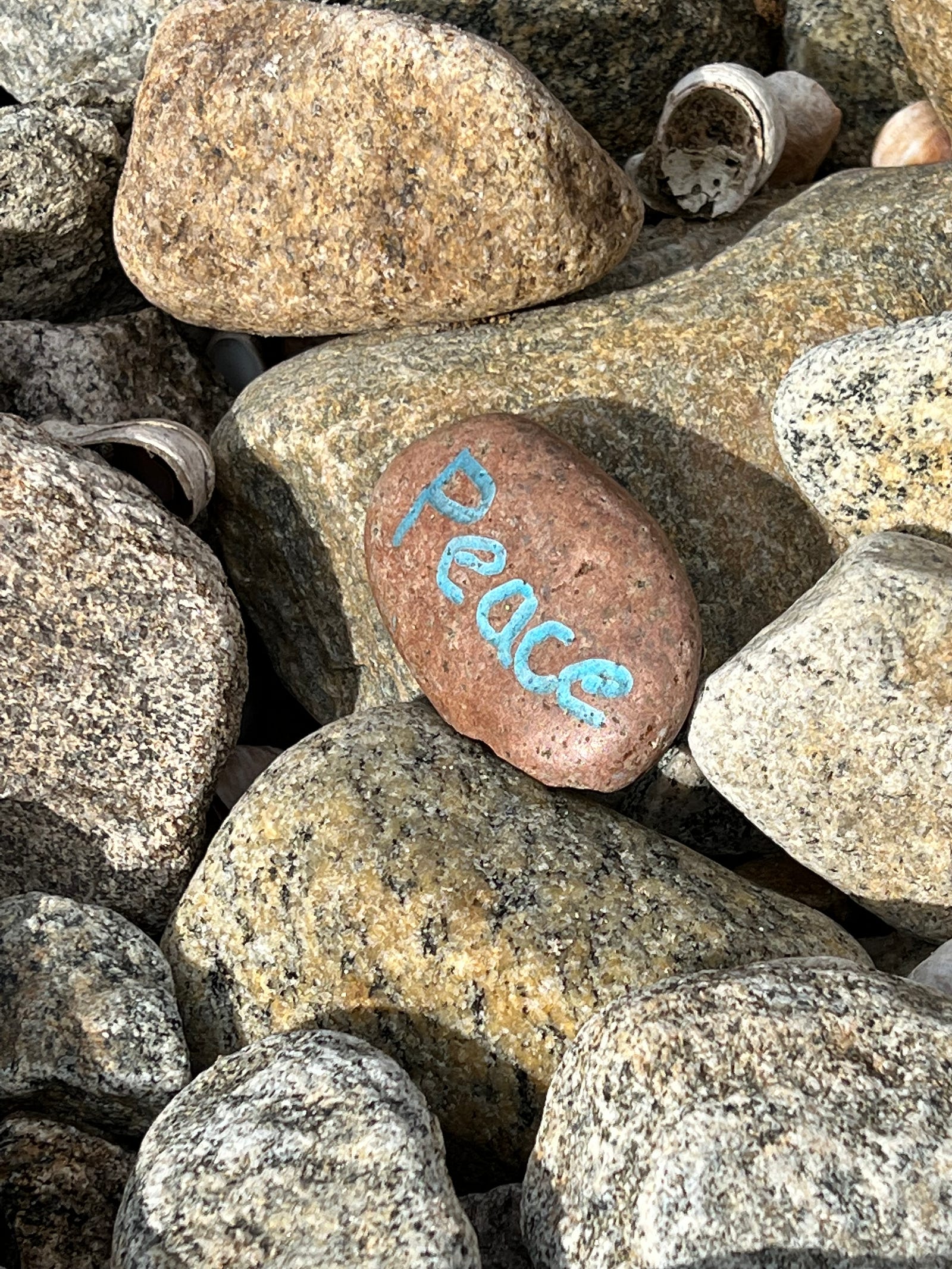
Inspired by hope, nervous about war? | Photo by Ron Steed
Some of the fisherfolk of Capernaum were probably inspired by this deep Jewish hope for God’s future, but maybe nervous that war was the way.
Force 3: God
God was the third of these converging forces, acting decisively in history through Jesus to establish God’s own kingdom on Earth; a kingdom that was nothing like what the Romans were exercising, and not what the Jewish people were expecting either.
Jesus was the Messiah and much more. All of this focused on a cross where all three forces came to a head; where Jesus was hung by a Roman governor, at the behest of local elites with their own agenda, and on which God in some mysterious way, would inaugurate God’s own Kingdom.
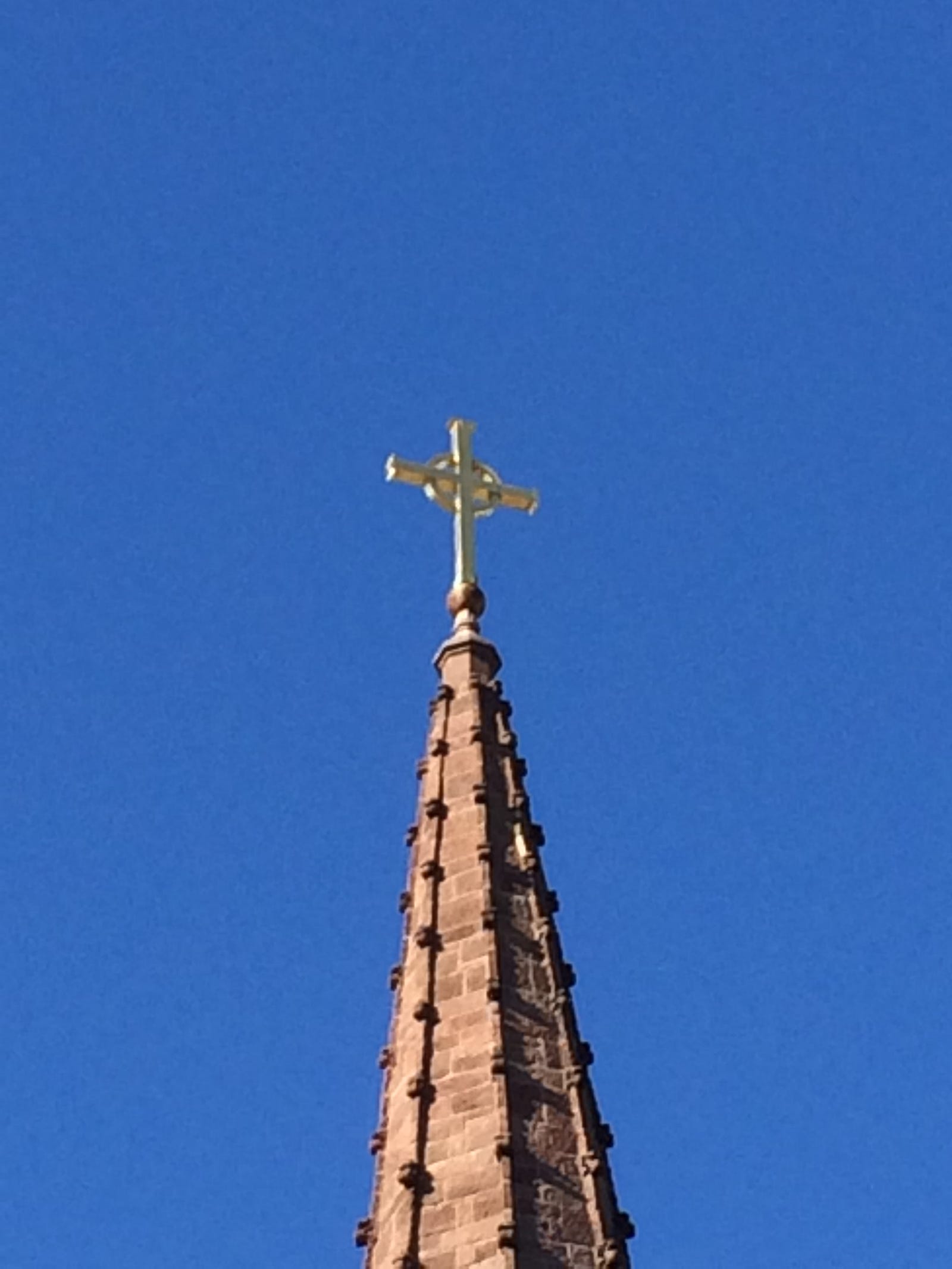
A convergence of three great forces on a wooden cross | Photo by Ron Steed of the steeple of St. James Episcopal Church New London, CT
Of course, that wasn’t the end of the story.
"Turn and Face a New Way!"
In the meantime, with these three forces swirling about, there is Jesus in the fishing village of Capernaum, acting very much like he is in charge, and proclaiming his own "good news", not to the Romans, but to his own people; "Repent, for the kingdom of heaven has come near."
"Listen!" he is saying. "Change your mind about the way you are headed… turn and face a new way! God is here with you and he loves you deeply… God’s Kingdom is near to you. The way you are facing friends… the direction you are headed… will lead to disaster. It is not what God wants for you or for the world… follow me and I will show you what to do and what the Kingdom of Heaven is about!"
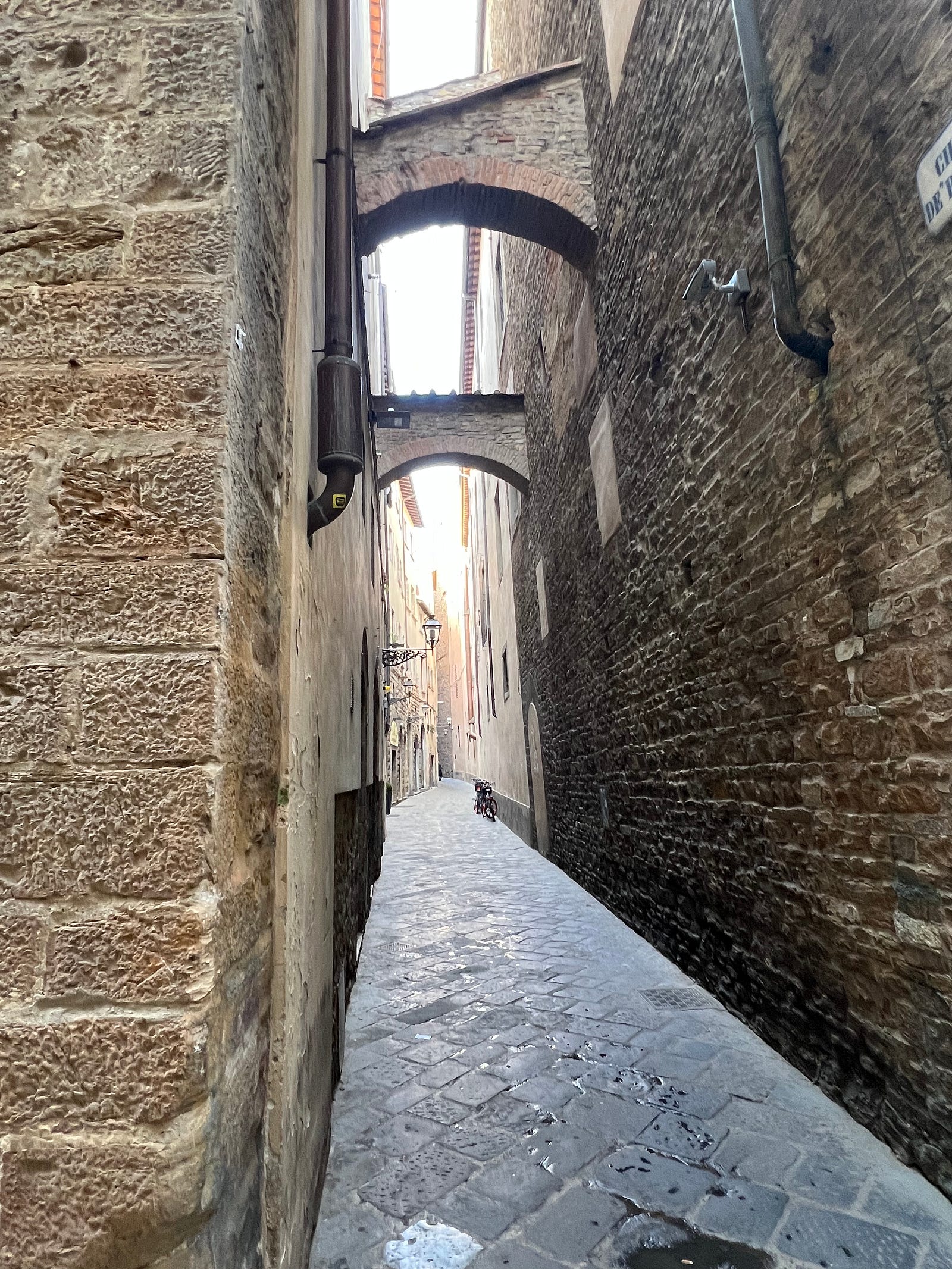
Friends, the direction you are headed will lead to disaster | Photo by Ron Steed near the Uffizi Gallery in Florence, Italy
The Compelling Appeal of Jesus
I think this was the compelling reason that Peter and Andrew, James and John left their families and their businesses to follow Jesus’s call. What Jesus said, and the authority with which he said it, offered both hope and an alternative to violence… Jesus offered some truly good news… not the parody of good news that the Romans offered, and not a zealous war that many among the Jewish people wanted. Maybe the Kingdom of God would be different. The healings and curings that Jesus did, underscored the point that something new and fresh was happening through Jesus.
From Jesus’ point of view, the whole strategy of God from the very beginning of humankind, across the entire biblical narrative, right up to his ministry in Capernaum, was to restore all of the creation through people who are also part of the problem. Peter, Andrew, James, and John, were now a part of that strategy.
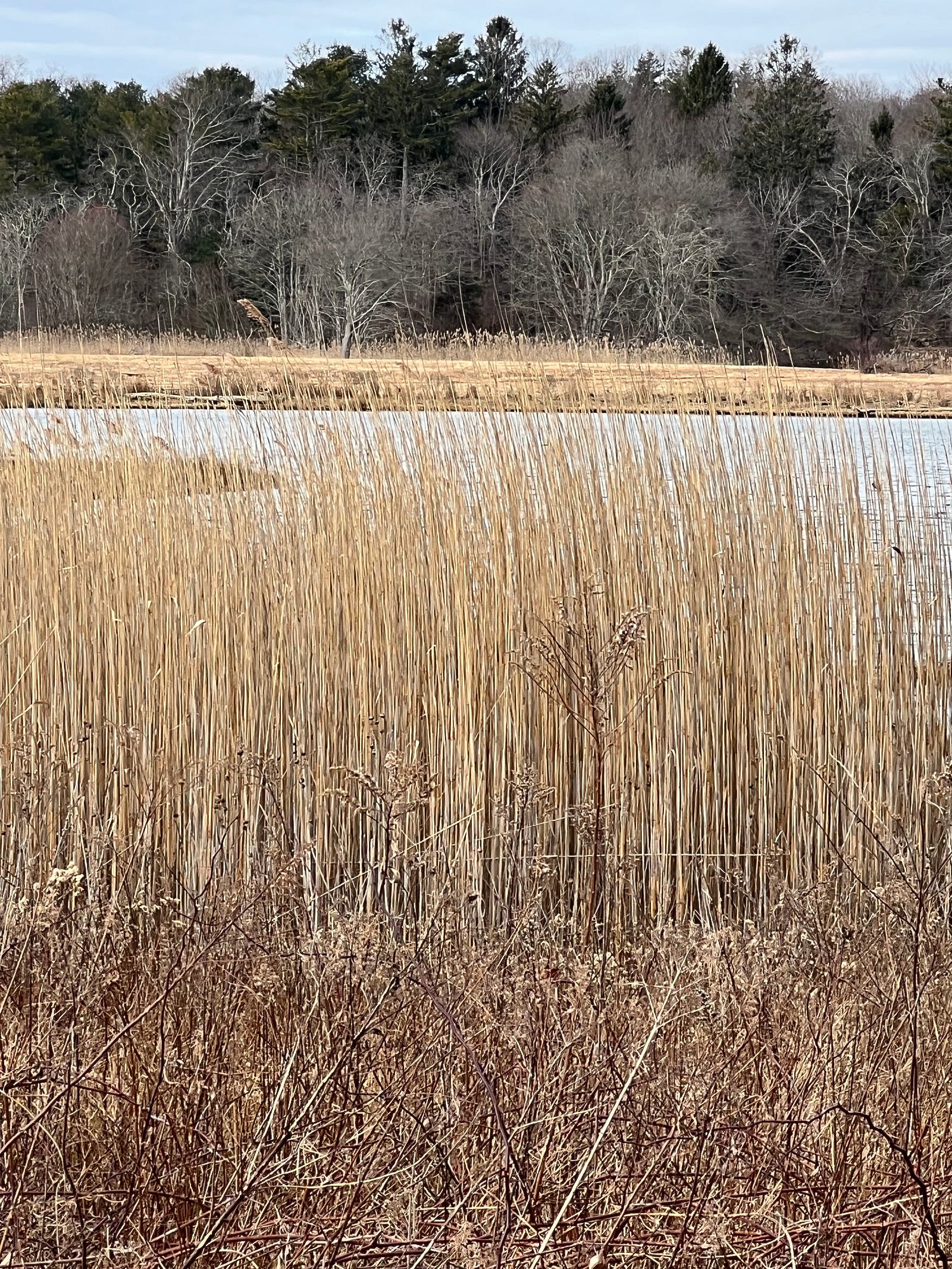
An offer of hope and an alternative to violence | Photo by Ron Steed at Harkness Memorial State Park
Similar Forces at Work Today
Friends, these three forces are still at work among us today, and we are faced with similar choices.
The West as Rome
The Western World today, and principally the United States is something very analogous to Rome.
It sees itself as a culture that has arrived and the history of its arrival as divinely inspired. Its propaganda tells the world that the United States is a city on the hill whose beacon of light is a blessing for the whole world and that we come bearing peace and security.
But in truth, the West is willing to destroy the planet’s climate to get what it wants. And it is happy to send its weapons to every corner of the Earth to get what it wants. And it will take indigenous land and slave labor to get what it wants… it already has. And if you’re Black or Brown, you might wonder who gets included in the West, because it might not feel like you are counted among them.
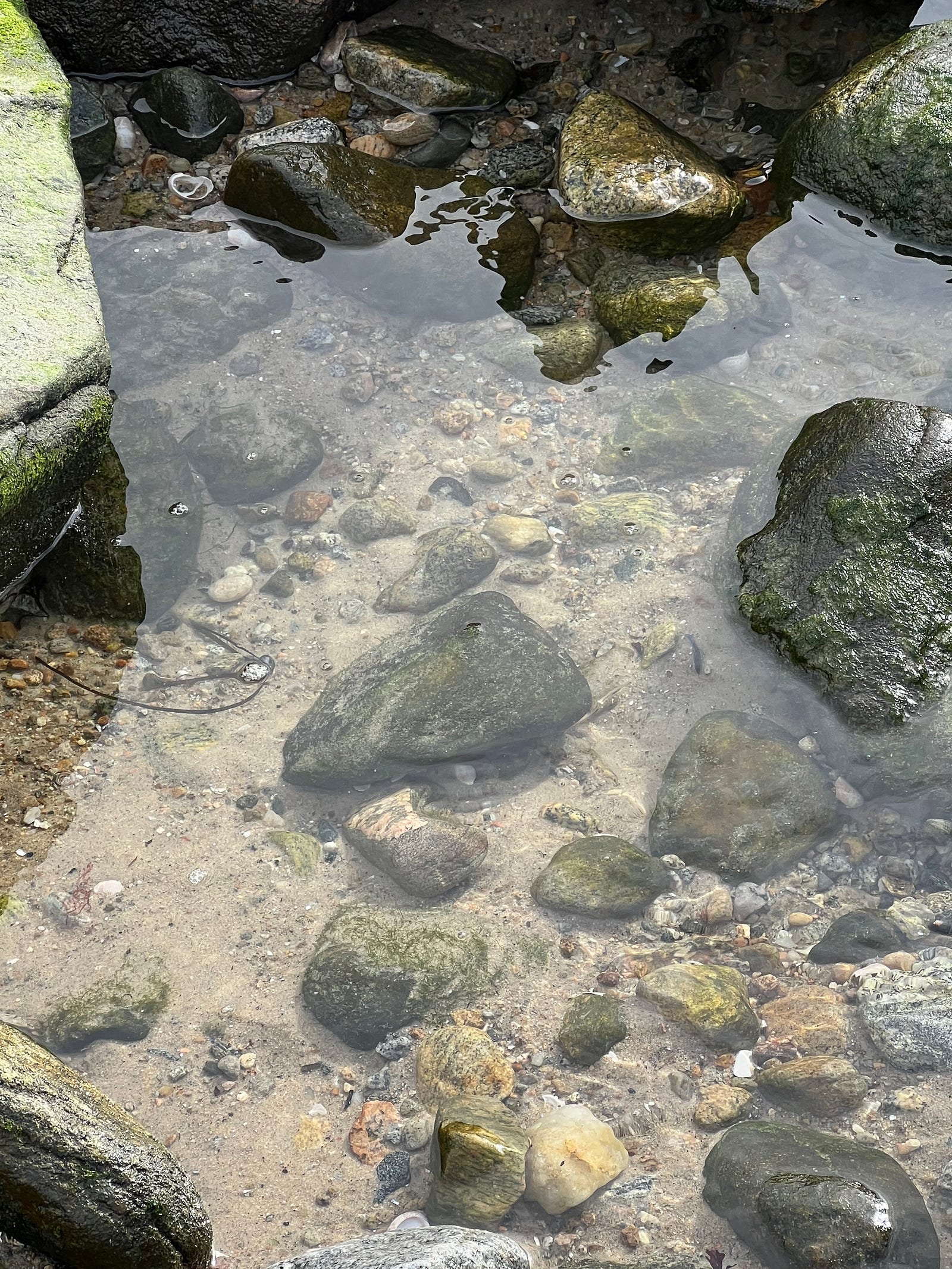
The west seems more than willing to destroy our planet | Photo by Ron Steed at a beach on Long Island Sound
Those Who Aspire to POWER
And, there are Christians today and others, who aspire to power.
There are many who think that God will act decisively to put them in charge, to judge who will be seen in God’s favor and who will not. There are many who are looking ahead to their own golden age of power and many of them think that the time is now. And they will use violence to get it.
But with God… Things Have Changed
Where the third power, God, is concerned, two important things have changed, and one has not:
- The victory has already been won on the cross and in the resurrection, and Christ is reigning with the long view in mind. He will not resort to power and violence as the world practices it but will work out his victory with peace and self-giving love. We are called to do the same.
- The Spirit has been given to humanity to fill us and guide us. At a minimum, those who follow Jesus are given this gift in abundance. We are called to ask for the Spirit and to lean hard on it.
- Just as the strategy for the Earthly Jesus was to work through people like Peter, Andrew, James, and John; people who are also part of the problem, that strategy is still the way with the risen Christ.
Let go of the Outcome and Trust the Process
All human beings, Christians included are still getting Jesus’ call "Repent, for the kingdom of heaven has come near." We are still getting the same command from Christ;"Follow me, and I will make you fish for people". Many have heard and have followed his compelling call.

The world seems full of sickness and disease… is there a medicine close at hand? Photo by Ron Steed
For our part, we have to let go of the outcomes and trust the process of Christ. It may be that our climate gets devastated; Christians will be there to provide what comfort and healing we can. It may be that the church as we know it will be unrecognizable in a couple of generations. Let it go; Christ will have the church that Christ needs.
I think Peter, Andrew, James, and John were able to answer the question they pondered that night after Jesus called them. Jesus’ call was compelling and his authority was unmistakable. They were able to let go of the outcome of their decision, and trust the process that Jesus was calling them to. It didn’t always go well, but in the end, all four of them, filled with the Holy Spirit, ended up spreading the Gospel of Jesus across the globe. I hope we can do that in our day too. Amen.
¹ This sermon was delivered at St. Andrews Episcopal Church, Madison, CT, on Sunday, January 22, 2023, Third Sunday after the Epiphany (Year A)
² Discussion on three forces derived from Wright, N. T. (2011). Chapters 3 & 4. In Simply jesus: A New Vision of Who He Was, What He Did, and Why He Matters. essay, HarperOne.